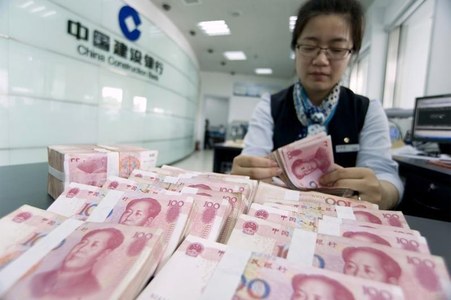KARACHI: Despite clear instructions from the State Bank of Pakistan (SBP) to promote the use of yuan, the share of Chinese currency for importing finished goods as well as raw material has remained negligible.
Traders while speaking to Dawn blamed the commercial banks for not spreading enough awareness in the business community regarding the use of Yuan for trade. “Our members do not import goods in yuan and I think the root-cause for this is the lack of awareness among traders,” said Chairman Pakistan Tyres Importers and Dealers Association Ashraf Dharani.
He said that trading in Yuan will take time despite the facility available at commercial banks. However, he added that “given the current unstable dollar rates, Yuan should be preferred for importing Chinese goods,” mentioning that “if letters of credit (LCs) are being opened in Euro and Yen then they should also be opened in Yuan, keeping in view the huge volume of imports from China.
“This will help bring stability in Yuan and curb dollar speculation,” he said highlighting that the share of Chinese tyres in the local market hovers between 70-80 per cent.
Chairman Pakistan Apparel Forum, Jawed Bilwani said “no raw material imports are being made through Yuan. I believe that future imports of raw materials should be carried out in Yuan which will augur well for the economy.”
Research Analyst at Top Line Securities, Nabeel Khursheed said in December 2011, a bilateral Currency Swap Agreement (CSA) was signed between SBP and Peoples Bank of China for a tenure of three years in respective local currencies (PKR140 billion and CNY10bn).
This facility was fully utilised on June 30, 2017 and subsequently a new arrangement was reached between two countries in May to increase the amount to ¥20bn for three years, he said. As of June, Pakistan had fully utilised the available CSA with China.
In 2013 then SBP Governor Yasin Anwar had said that the facility was utilised to arrange dollars for balance of payments support at a time when the country’s reserves were dangerously low. Those drawings were subsequently repaid by the PML-N government.
Since the agreement was signed to promote bilateral trade, finance direct investment, provide short-term liquidity support and for any other purpose mutually agreed between the two central banks, it is hard to say if the total amount of ¥20bn was utilised to settle trades only. The amount could also be used for other purposes mutually agreed between the two countries, Nabeel said.
“While the trade with China cannot be calculated using the above facility, according to our channel checks, the quantum of trade under the facility has been limited”, he added. However he mentioned that, keeping in view the recent volatility coupled with the willingness from both governments to reduce their dependence on dollar, it seems highly likely that the CSA facility will be increased.
Chairman Sindh Circle Pakistan Automobile Spare Parts Importers and Dealers Association Abdul Razzak said that only one to two per cent of the members of his association trade in Yuan despite the fact that 60pc of the auto parts arrive from China. “I think commercial banks have not played their role in generating awareness among businessmen regarding Yuan,” he said while claiming that the Chinese currency looks more feasible than dollar.
On the hand, blaming the commercial banks, General Secretary, All City Tajir Ittehad Association says that banks usually insist on using dollar for import activities. The SBP, which had already issued guidelines to banks, must check the role of banks in promoting Yuan trading.
President Pakistan Machinery Merchants Group Khurram Saigol said “Yuan currency is hardly being utilised in importing generators by the traders as they prefer dollar despite the fact that 80pc generators are being imported from China.”
“I think the commercial banks have not played their role in encouraging market to shift to Yuan”, claims Mohammad Rizwan, President Karachi Electronics Dealers Association mentioning that 100pc imports of electrical and electronic goods are being made through dollar instead of Yuan.
However, Former president Site Association of Industry and Karachi Chamber of Commerce and Industries Zubair Motiwala claimed that the businessmen are gradually shifting towards Yuan for importing finished and raw material from China. “I think SBP and banks should do more efforts in creating awareness for Yuan among business community,” he said.
Published in Dawn, December 26th, 2018














































Dear visitor, the comments section is undergoing an overhaul and will return soon.